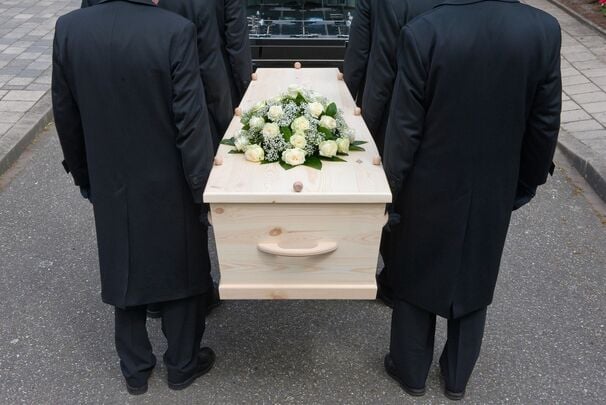A natural part of life, a look at a deceased's journey from death bed to sainthood in a small country village in Ireland.
Life was harsh in the rural village of my childhood. Many people did not make ‘"old bones" at that time. Without access to modern medicine colds and flu turned into pneumonia and many did not survive. Pneumonia was considered the old people's friend.
Because there were no telephones in the village, we learned of the death of someone by a kind of bush telegraph. If the deceased had lived to "a good old age" someone might say ‘’if he lived any longer we would have to shoot him’.’
Now, the all-important question was "Did he have the priest on time?" If so he would have received the sacrament of "Extreme Unction" known as the Holy Rites of the Catholic Church. If not, his chances of getting to Heaven in the first round were slim. It would take a long time in Purgatory and many Novenas for that to be achieved.
However, all was not lost . If a person had gone to Mass and Holy Communion on the first Friday of the month for nine consecutive months, the good Lord in his infinite mercy promised that they would not die "under My displeasure".
However, nothing trumped Extreme Unction for upping one's chances of getting into Heaven in the first round.
The deceased was "waked" at home in those days. Neighborhood women washed the body and dressed it in a brown shroud with a hood and the monogram IHS embroidered on it. The villagers thought it meant "I have suffered" until some learned person ruined it for them by declaring it meant "Jesus" in Greek.
On a windy day, these shrouds could be seen "airing out" on clotheslines.
Read more
We children would pay our respects on our way home from school and pray at the bedside of the dead person. We did not have any fear of the dead body and were more interested in the slice of currant bread that we got on the way out. Nobody explained about death to us, so it became a natural event. Death was as natural as its polarity, birth.
At night it was customary for neighbors to keep vigil with the bereaved. It was traditional to have a barrel of Guinness for the men to help with storytelling and exploits of the dead man. A bottle of port helped the wits of the ladies in charge of the rosary and prayers for the dead. By morning with tongues loosened by liquor, the dead man was almost canonized. It was considered very bad form to speak ill of the dead.
Six men would shoulder the coffin of the deceased to the local church for The Mass of the Dead and a liberal sprinkling of Holy Water. The priest's sermon would guard against the sin of presumption so as not to assume the deceased was in Heaven. He also preached against the sin of despair so that the deceased had a sporting chance of seeing the Beatific Vision.
The coffin would be shouldered once more to the graveyard for burial. It was customary when meeting a funeral procession on the road that one would turn around and walk some of the way with it. In the Gaelic language this was called ‘’Tri cosceim an Toramh’’ Loosely translated it means three steps with the funeral.
In the new sophisticated Ireland of today, all this is changed. Funeral homes and minimal influence if any by priests is the new order.
This article was submitted to the IrishCentral contributors network by a member of the global Irish community. To become an IrishCentral contributor click here.




Comments